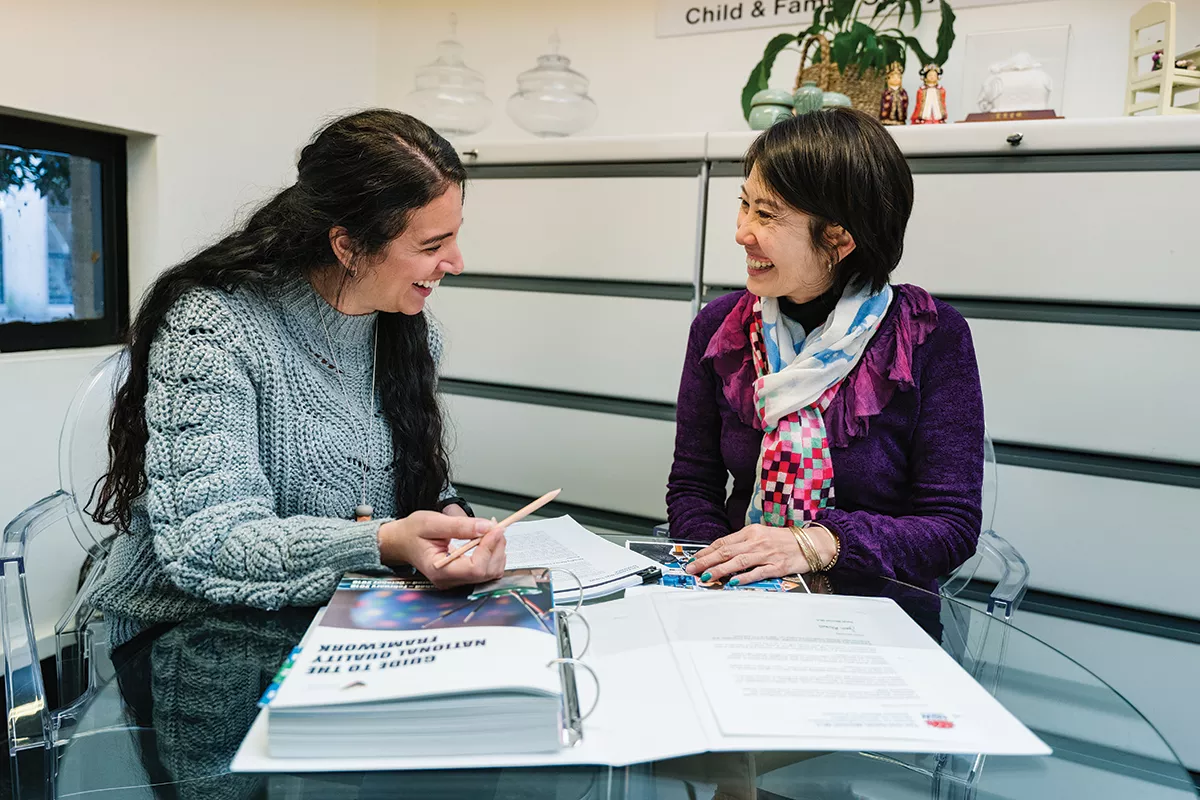- Home
- BELONGING, BEING & BECOMING - THE EARLY YEARS LEARNING FRAMEWORK
- (EYLF) PRINCIPLES
- (EYLF) Collaborative leadership and teamwork
Table of contents
- BELONGING, BEING & BECOMING - THE EARLY YEARS LEARNING FRAMEWORK
- (EYLF) INTRODUCTION
- (EYLF) A VISION FOR CHILDREN'S LEARNING
- (EYLF) ELEMENTS OF THE EARLY YEARS LEARNING FRAMEWORK
- (EYLF) EARLY CHILDHOOD PEDAGOGY
-
(EYLF) PRINCIPLES
- (EYLF) Secure, respectful and reciprocal relationships
- (EYLF) Partnerships
- (EYLF) Respect for diversity
- (EYLF) Aboriginal and Torres Strait Islander perspectives
- (EYLF) Equity, inclusion and high expectations
- (EYLF) Sustainability
- (EYLF) Critical reflection and ongoing professional learning
- (EYLF) Collaborative leadership and teamwork
- (EYLF) PRACTICES
- (EYLF) THE EARLY YEARS LEARNING FRAMEWORK PLANNING CYCLE
- (EYLF) LEARNING OUTCOMES
- (EYLF) GLOSSARY OF TERMS
- (EYLF) REFERENCES
Need help using the guide? Visit our help section.
(EYLF) Collaborative leadership and teamwork

All educators exercise aspects of leadership in their daily work with children, families and colleagues. Educators lead their own ethical practice as they take professional and personal responsibility for their actions and the decisions they make. Collaborative leadership and teamwork are built on a sense of shared responsibility and professional accountability for children’s learning, development and wellbeing. It is a view of leadership that empowers all members of the team to use their professional knowledge and skills in ways that assist everyone to do the best they can for children, families and colleagues in their setting.
Collaborative leadership and teamwork are aspects of a positive work culture where a motivation to enact a professional philosophy of cooperation and collaboration enables positive relationships to grow. Children and families are attuned to the work culture of an early childhood setting, which influences their relationships, interactions and experiences within that setting.
Collaborative leadership and teamwork are built on professional and respectful conversations about practice. Educators engage with different ways of thinking and working to critically reflect on their practice both individually and as a team, and contribute to curriculum decisions and quality improvement plans. Children’s learning, development and wellbeing is optimised when educators communicate and share ideas and views about improving practice. Collaborative leadership and teamwork support a culture of peer mentoring and shared learning where all team members contribute to each other’s professional learning and growth for high quality programs for children in early childhood settings